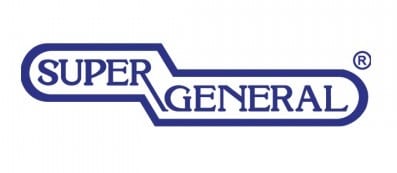Selecting the right HVAC system for your home is a decision that goes beyond mere comfort; it directly impacts your energy bills and the environment. In this comprehensive guide, we’ll explore the essential factors to consider when choosing an HVAC system, ensuring you make an informed decision tailored to your home’s unique needs.
Understanding HVAC Basics
HVAC, an acronym for Heating, Ventilation, and Air Conditioning, is a complex system that plays a pivotal role in maintaining a comfortable and healthy indoor environment. Let’s delve deeper into the fundamental components and workings of HVAC systems to equip you with a comprehensive understanding.
Heating, Ventilation, and Air Conditioning Defined
- Heating Component: The heating aspect of HVAC systems is designed to maintain a comfortable temperature inside your home during colder seasons. This is achieved through the use of furnaces, heat pumps, or other heating mechanisms.
- Ventilation Component: Ventilation is crucial for ensuring the circulation of fresh air and the removal of indoor pollutants. Proper ventilation involves the exchange of stale indoor air with fresh outdoor air, contributing to a healthier living space.
- Air Conditioning Component: Air conditioning is responsible for cooling indoor spaces during warmer months. This component uses various technologies, such as refrigeration cycles, to remove heat from the indoor air, providing a cooler and more comfortable atmosphere.

Assessing Your Home’s Needs
Selecting the right HVAC system requires a meticulous evaluation of your home’s characteristics to ensure optimal performance and efficiency.
Size and Layout Considerations
- Square Footage: Determine your home’s total square footage to gauge the capacity needed for effective heating and cooling. Proper sizing prevents energy inefficiencies.
- Number of Rooms: Consider the number of rooms; systems like ductless mini-splits provide zoned control for varied heating and cooling needs.
- Insulation and Windows: Assess insulation and window efficiency. Well-insulated homes with energy-efficient windows impact system sizing and choice.
Climate Impact on System Choice
- Local Climate: Consider your region’s climate; choose systems that address specific climate demands, such as heating-focused systems in colder climates.
- Humidity Levels: Prioritize systems with effective dehumidification in humid climates for comprehensive comfort.
- Climate Considerations for Ductwork: Evaluate the impact of climate on existing ductwork efficiency, especially in regions with extreme temperatures.
A concise evaluation of these factors ensures your HVAC system aligns perfectly with your home’s needs, enhancing both comfort and energy efficiency.
Energy Efficiency Matters
Investing in an energy-efficient HVAC system is not just a trend but a wise decision with long-term benefits. Understanding rating systems like SEER (Seasonal Energy Efficiency Ratio) and EER (Energy Efficiency Ratio) will empower you to make an informed decision that contributes to both cost savings and environmental sustainability.
Types of HVAC Systems
There are various HVAC systems available, each with its unique advantages. From traditional split systems to innovative geothermal systems, we’ll explore the options to help you make an educated choice that suits your home’s specific needs.
- Split Systems: A common HVAC configuration, split systems consist of both indoor and outdoor units. The indoor unit houses the evaporator coil and air handler, while the outdoor unit contains the compressor and condenser coil. These systems are versatile and can accommodate various heating and cooling sources.
- Packaged Systems: In contrast to split systems, packaged HVAC units house all components in a single outdoor unit. These units are often installed on rooftops or in limited indoor spaces, making them suitable for smaller homes or commercial buildings.
- Ductless Mini-Split Systems: Ideal for homes without ductwork, ductless mini-split systems offer zoned heating and cooling. They consist of an outdoor condenser unit and one or more indoor air-handling units, providing flexibility in temperature control for different zones within your home.
Heating Options
When it comes to heating, furnaces and heat pumps are the primary options. Knowing the distinctions between these heating systems is crucial to ensuring energy efficiency and comfort during colder months.
Cooling Options
Cooling options range from central air conditioners to evaporative coolers. Understanding the distinctions will enable you to choose a system that effectively meets your cooling needs while considering factors like energy efficiency.
HVAC System Prices by Type
When considering the installation of an HVAC system, it’s essential to be aware of the price range associated with different types. Each HVAC type comes with its own set of features, efficiencies, and installation complexities, contributing to variations in pricing. Below is a breakdown of HVAC system prices by type to help you make an informed decision based on your budget and specific requirements.
Split Systems:
- Price Range: 9,000AED – 28,000AED
- Factors Influencing Price:
- System Capacity: Higher capacity systems for larger homes typically have a higher cost.
- Energy Efficiency: Units with higher SEER (Seasonal Energy Efficiency Ratio) ratings may come at a premium.
- Brand: Established brands or units with advanced features may have a higher price tag.
Packaged Systems:
- Price Range: 7,000AED – 22,000AED
- Factors Influencing Price:
- Unit Type: Gas/electric packaged units may have different price points.
- Efficiency: High-efficiency models may cost more initially but offer long-term energy savings.
- Brand: Well-known brands or units with additional features may be priced higher.
Ductless Mini-Split Systems:
- Price Range: 5,000AED – 30,000AED (per indoor unit)
- Factors Influencing Price:
- Number of Zones: The more zones you require for individual temperature control, the higher the cost.
- Energy Efficiency: Higher SEER ratings may increase the upfront cost but lead to energy savings.
- Brand: Recognized brands or units with advanced technology may be priced higher.
Additional Cost Considerations for All Types:
- Installation Costs: Installation costs can vary based on factors such as the complexity of the installation, location, and any additional modifications needed for the system.
- Ductwork (if applicable): For split and packaged systems, the presence or absence of existing ductwork can influence installation costs. Ductless and geothermal systems often require minimal ductwork.
- Labor Costs: Labor costs for installation can vary based on the region, contractor rates, and the complexity of the installation process.
- Additional Features: Advanced features such as smart thermostats, air purifiers, or zoning capabilities can add to the overall cost of the HVAC system.
Choosing a Reputable HVAC Contractor
Consider CoolersOnline for your HVAC needs – a trusted team with unmatched expertise. Benefit from their professional installations, positive reviews, and comprehensive services. With transparent communication and a customer-centric approach, CoolersOnline ensures a seamless and reliable HVAC experience. Choose excellence; choose CoolersOnline for optimal home comfort.
Conclusion
In conclusion, selecting the right HVAC system involves a careful consideration of various factors to ensure comfort, efficiency, and sustainability. Armed with the knowledge gained from this guide, you are better equipped to make an informed decision that aligns with both your immediate needs and future requirements.
Frequently Asked Questions
What factors should I consider when choosing an HVAC system?
Assess your home’s size, layout, climate, and your preferences to determine the most suitable system.
Are smart HVAC systems worth the investment?
Yes, smart systems offer enhanced control and energy efficiency, making them a worthwhile investment.
How can I reduce the environmental impact of my HVAC system?
Opt for systems that use eco-friendly refrigerants and have a lower carbon footprint.
Is professional HVAC installation necessary?
Yes, professional installation ensures proper setup and optimal performance of your HVAC system.
What is the importance of regular HVAC system maintenance?
Regular maintenance prolongs the lifespan of your system, ensuring it operates efficiently for years to come.
























